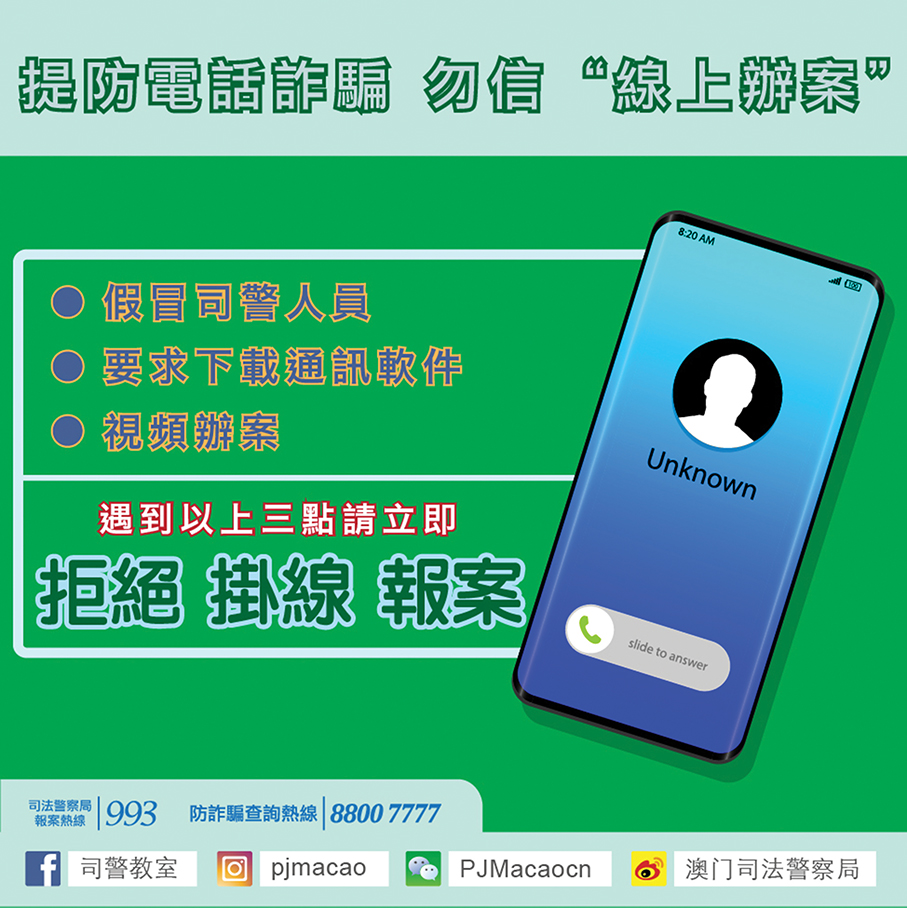The Judiciary Police (PJ) urged the public again yesterday to beware of phone scams from purported “government entities”.
According to a PJ statement, a resident, whose gender was not disclosed in the statement, reported to the Judiciary Police recently that he or she received a call from a purported PJ officer claiming that he or she was involved in a fraud and money-laundering case, after which the call was transferred to a purported mainland police officer. During the process, the victim was asked to download a mobile phone communication app and turn on the screen-sharing function for “online investigation”, after which about 120,000 patacas in the victim’s bank account was transferred.
A PJ investigation confirmed that the scammer secretly obtained the victim’s bank information and verification code through screen sharing, and logged into his or her bank account to steal the money.
The Judiciary Police reaffirmed in the statement that they would never investigate any cases “online” or “over the phone”, nor would they ask for personal information and bank account details over the phone, nor would they transfer calls to mainland law enforcement departments.
In response to the increasing number of phone scams in recent days, the Judiciary Police repeatedly urged the public to beware of any cold calls, be alert to all kinds of telecom fraud, such as receiving suspicious calls, and remember the three principles: “refuse calls from an unknown number”, “hang up on people asking for a money transfer, bank account pin codes, downloading an unknown app and turning on the screen-sharing function”, and “call the police on 8800 7777 or 993”.

This infographic provided by the Judiciary Police (PJ) yesterday warns the public to beware of bogus calls from purported PJ officers.








